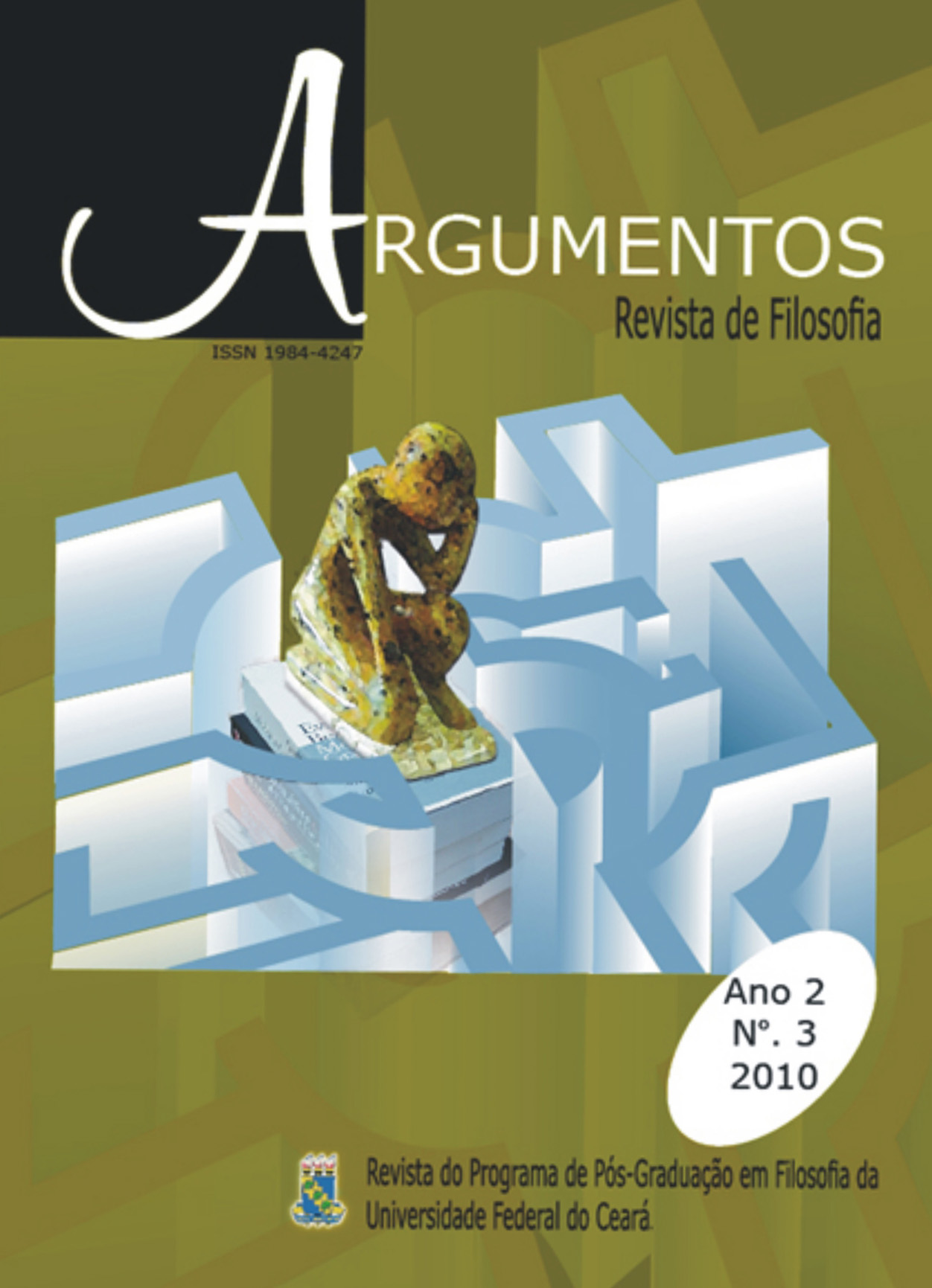Levinas and the paths of Philosophy
Keywords:
Truth. Autonomy. Heteronomy. Ethics.Abstract
To Emmanuel Levinas (1906 – 1995), philosophy, as well as sciences, may be represented by the pursuit of truth; however it’s a wild representation and empty at first. Such pursuit may take two paths: the first is the one the truth is closely attended with experience. Who thinks keeps, in truth, a relationship with what is dif- ferent from him. Truth involves relationship with exteriority, with transcendence and with the other. However, truth means a free investigation on the part of the thinker, who does not find any limitations of inquiring. Such truth is the practice of denying the other itself, not been alienated in its own movement, for the contact with the other’s reality does not prevent its progress. From this, the pursuit of truth, as a practice of freedom, may be understood as a walk of the autonomy, its own walk. Philosophy could not be other than that walk of appropriation of existence by the man, along the history. Said that, the purpose of this work is to discourse about the choice the philosophy made, it is, lost most part of its journey in benefit of the defense of liberty and, consequently, of itself, proclaiming the anteriority of autonomy to the detriment of heteronomy: “violence” and appropriation would be explained.Downloads
Published
Issue
Section
License
Argumentos magazine is licensed under an International Creative Commons Attribution License.
The Magazine uses CC BY inclusion
1) The authors retain the copyright granted to the magazine or the right to initial publication, with the work regularly licensed under the Creative Commons Attribution, which allows the sharing of the work with acknowledgment of authorship and initial publication in this magazine.
2) The authors are authorized to contract additional applicable contracts, for non-exclusive distribution of the version of the work published in this journal (for example, publication in the institutional repository or as a chapter of the book), recognition of authorship and initial publication in this journal.
3) Authors are authorized and encourage to publish and distribute their work online (for example, in institutional repositories or on their personal pages) at any time before or during the editorial process, as they can generate productive changes, as well as increase the impact and reference of published work.




.jpg)










._._3.png)
1.jpg)
._._._.png)
